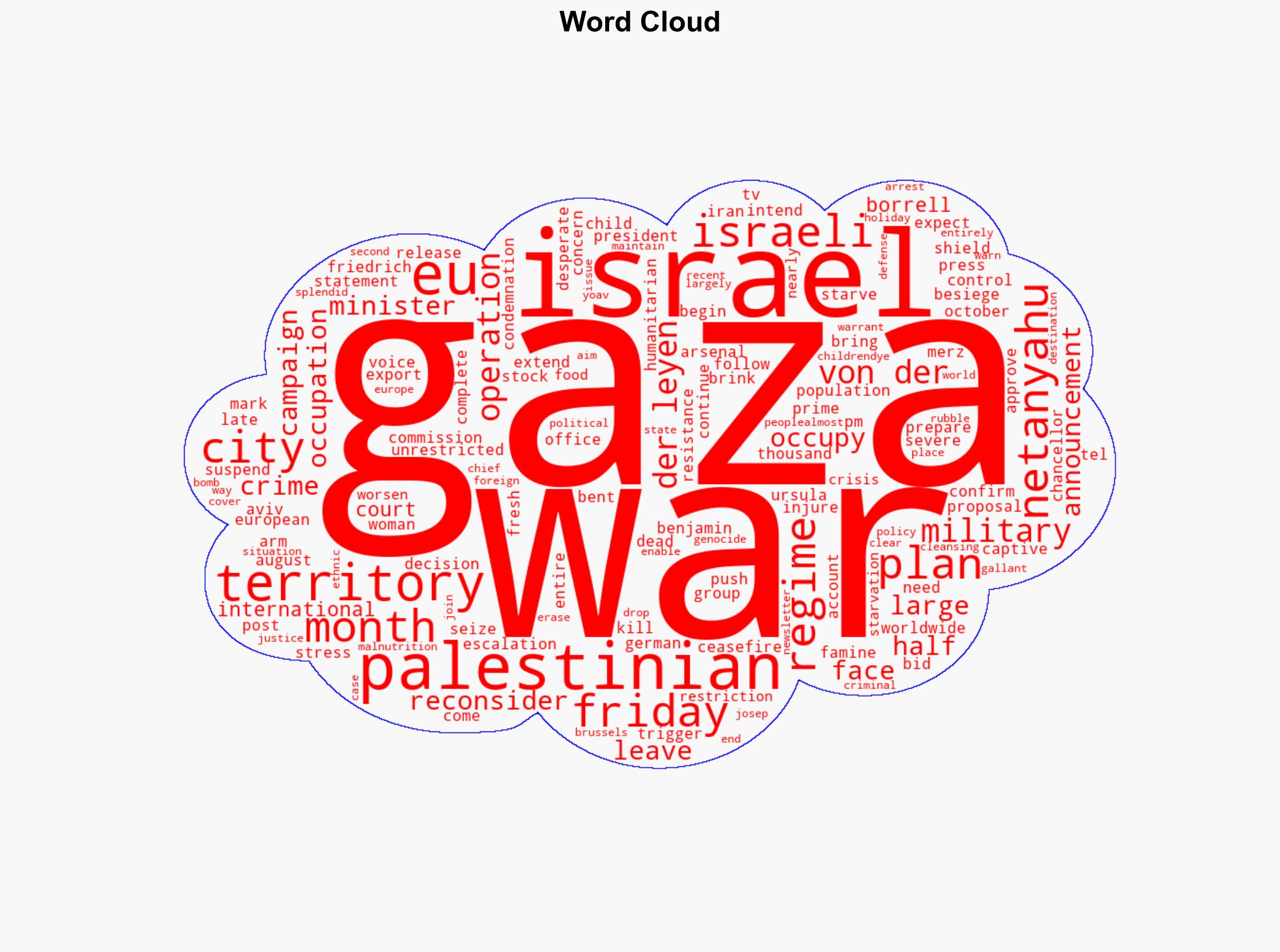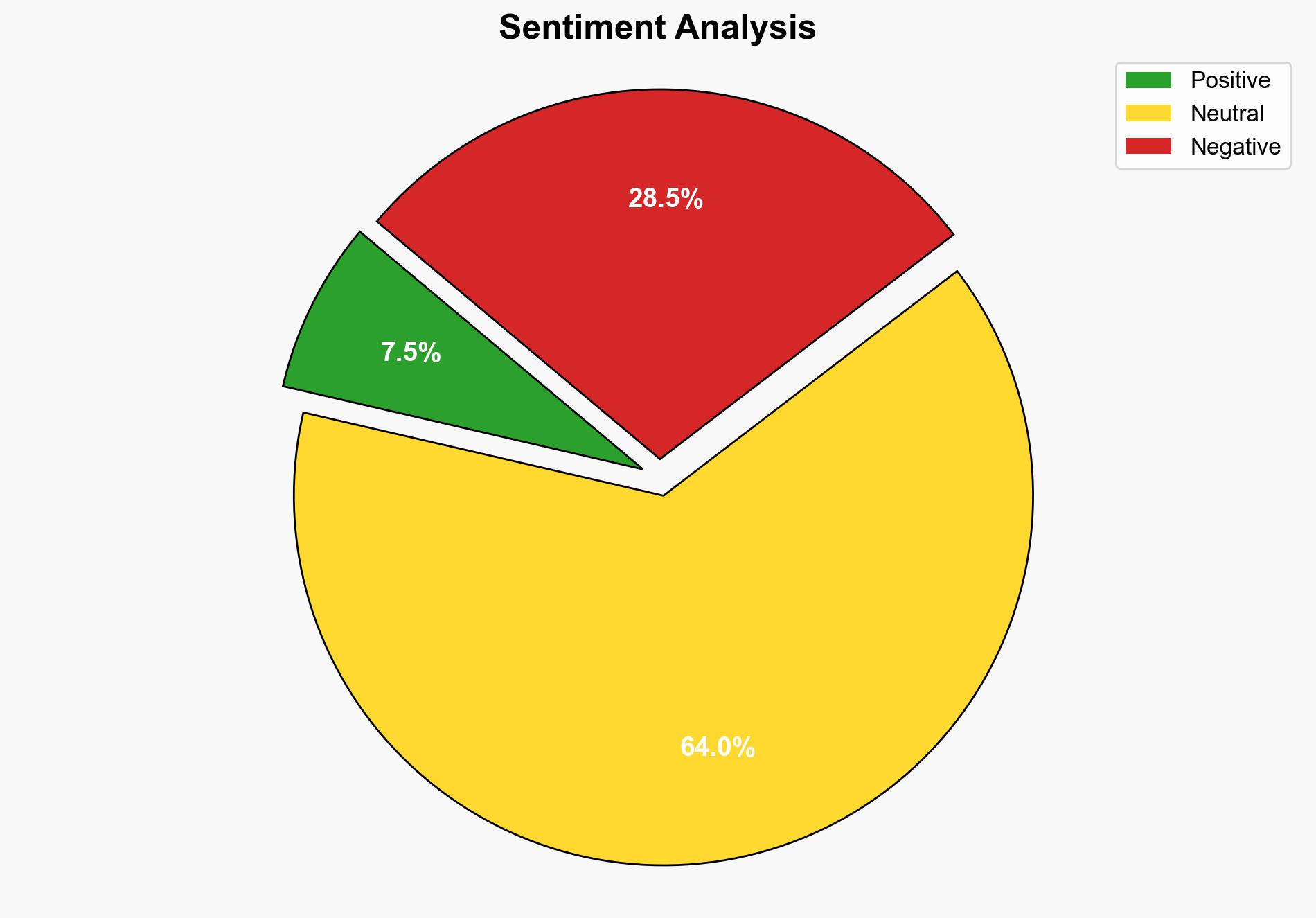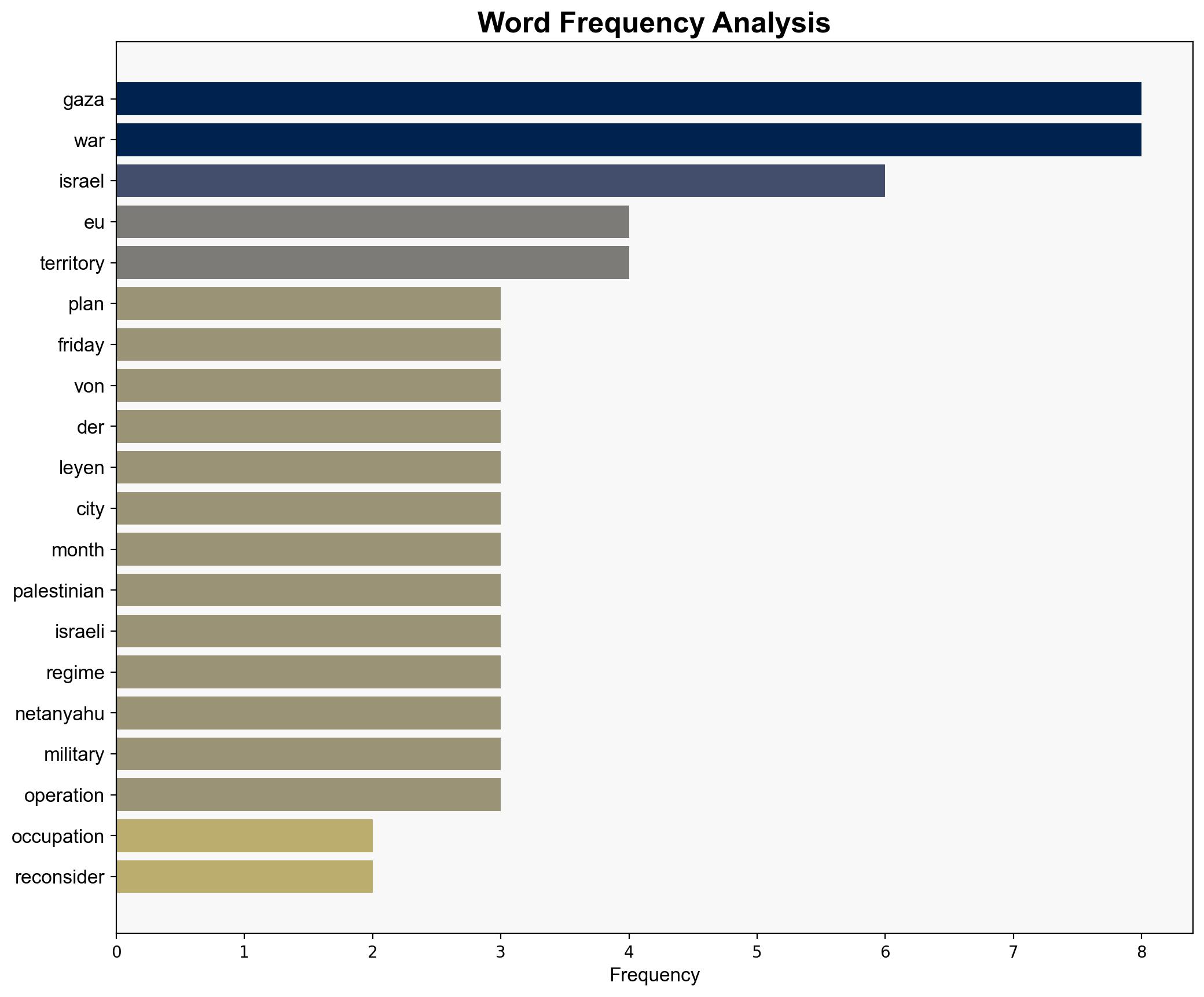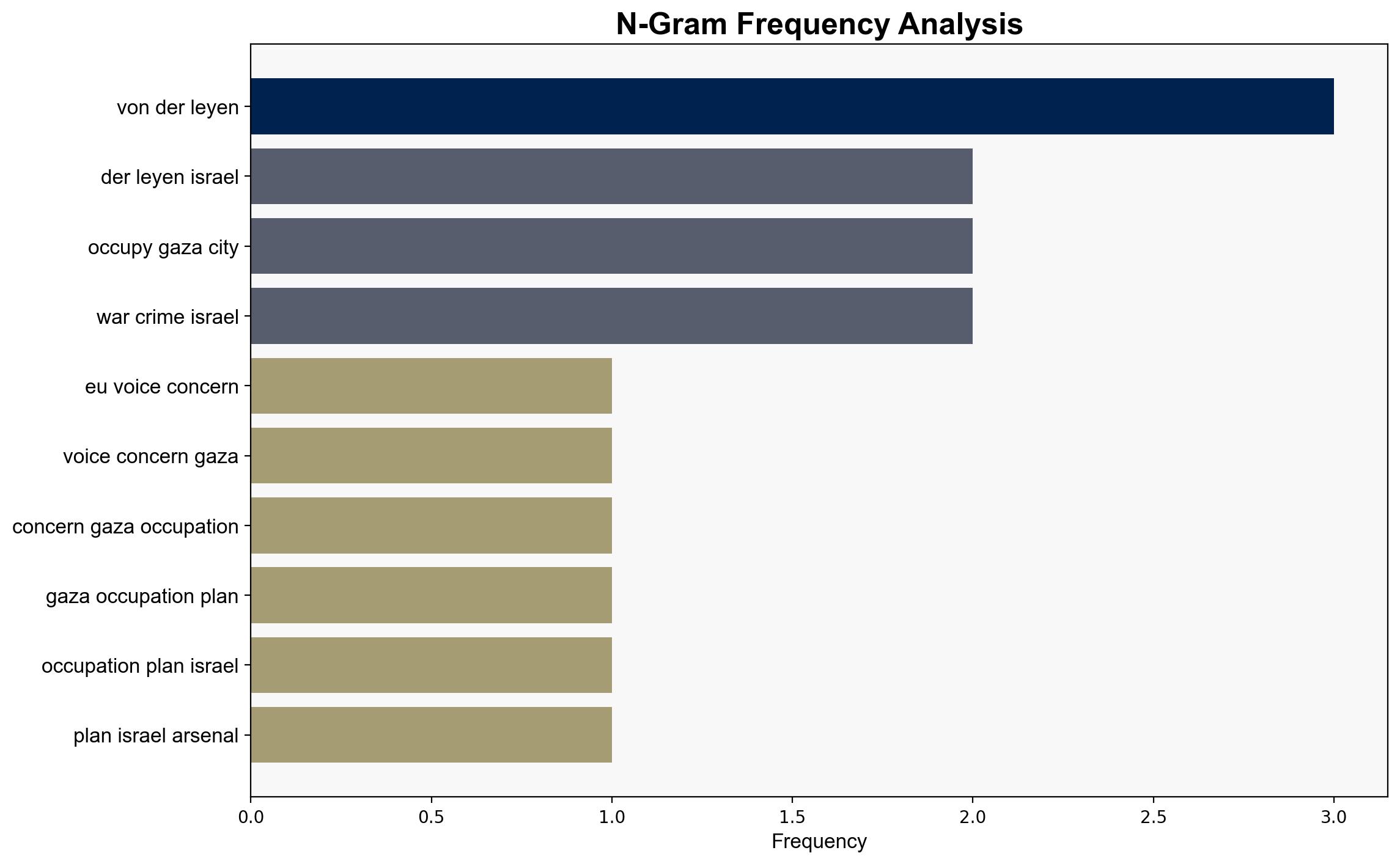EU voices concern over Gaza occupation plan while keeping Israel’s arsenal stocked – Globalsecurity.org
Published on: 2025-08-09
Intelligence Report: EU voices concern over Gaza occupation plan while keeping Israel’s arsenal stocked – Globalsecurity.org
1. BLUF (Bottom Line Up Front)
The European Union’s (EU) dual stance on Israel’s military actions in Gaza—expressing concern over occupation plans while continuing to supply arms—presents a complex geopolitical scenario. The most supported hypothesis is that the EU is attempting to balance diplomatic pressure with strategic alliances, albeit with potential reputational risks. Confidence level: Moderate. Recommended action: The EU should reassess its arms policy to align more closely with its public statements to maintain credibility and influence in the region.
2. Competing Hypotheses
1. **Hypothesis A**: The EU’s concern over Gaza is primarily diplomatic, aimed at maintaining international credibility while its continued arms supply to Israel serves strategic interests, such as regional stability and counter-terrorism.
2. **Hypothesis B**: The EU’s actions reflect internal division, with some member states prioritizing human rights and others focusing on strategic alliances with Israel.
Using the Analysis of Competing Hypotheses (ACH) 2.0, Hypothesis A is better supported due to the EU’s historical pattern of balancing human rights concerns with strategic interests.
3. Key Assumptions and Red Flags
– **Assumptions**: The EU believes that maintaining a strategic alliance with Israel is crucial for regional stability. It assumes that public statements of concern will mitigate reputational damage.
– **Red Flags**: The inconsistency between the EU’s public statements and actions could lead to accusations of hypocrisy, undermining its diplomatic influence.
– **Blind Spots**: Potential underestimation of the long-term impact of arms supplies on regional tensions and EU’s reputation.
4. Implications and Strategic Risks
The EU’s current approach may lead to increased geopolitical tensions and damage its credibility as a mediator in the Middle East. The continuation of arms supplies could exacerbate the humanitarian crisis in Gaza, potentially leading to increased anti-EU sentiment in the region. Economically, this could affect EU trade relations with Middle Eastern countries.
5. Recommendations and Outlook
- **Mitigation**: The EU should consider a temporary suspension of arms supplies to Israel pending a comprehensive review of its Middle East policy.
- **Best Case Scenario**: The EU successfully mediates a ceasefire, enhancing its role as a peace broker.
- **Worst Case Scenario**: Continued arms supplies lead to further escalation in Gaza, damaging EU’s international standing.
- **Most Likely Scenario**: The EU maintains its current stance, leading to gradual erosion of its credibility without immediate geopolitical shifts.
6. Key Individuals and Entities
– Ursula von der Leyen
– Benjamin Netanyahu
– Friedrich Merz
– Josep Borrell
7. Thematic Tags
national security threats, geopolitical strategy, Middle East conflict, EU foreign policy




